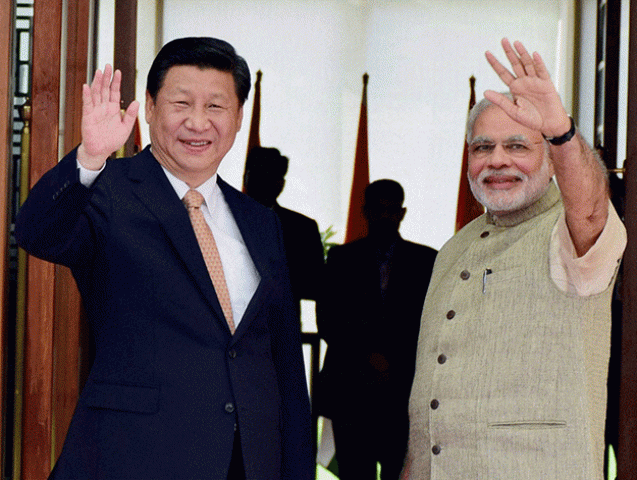India's Modi heads to China as rivals seek common ground
Modi will fly out for his first visit as premier to China before heading to South Korea

PHOTO: DNAINDIA
Modi will fly out for his first visit as premier to China before heading to South Korea where he will also seek help to upgrade India's creaking infrastructure.
After Modi hosted China's President Xi Jingping last year in his home state of Gujarat, Xi will return the favour by giving him a tour of his ancestral home province of Shaanxi before they head to Beijing.
Modi will also meet business chiefs in the financial hub of Shanghai, seeking to deliver on election promises for foreign investment in India's crumbling rail and other infrastructure.
"I firmly believe this visit to China will strengthen the stability, development and prosperity of Asia," Modi wrote on Sina Weibo, China's version of Twitter, of the three-day visit that begins Thursday.
Despite a reputation as a hardline nationalist, Modi moved quickly to engage with Beijing after winning power last May.
His main focus in his first year in office has been to revive India's stuttering economy, courting other economic powerhouses such as the United States, Japan and Germany.
Ties between China and India have long been strained over the border dispute and Beijing's recent push to forge closer ties with countries in India's backyard has caused some alarm in New Delhi.
But in a sign of Modi's pragmatic approach towards Beijing, he has appeared relaxed about China's ambitions, saying it has a "right" to seek greater influence.
During Xi's visit to India last September -- the first visit by a Chinese president in eight years -- the two men spoke of their desire to place cooperation above competition and ensure "tranquility" along their border.
The two countries fought a brief but bloody border war in 1962 over the northeastern Indian state of Arunachal Pradesh, areas of which Beijing claims as South Tibet.
However, in an interview with Time magazine last week, Modi said the two countries have shown "great maturity" in recent decades over the border issue and were committed to "economic cooperation".
For his part, Chinese Premier Li Keqiang said the "boundary question is a problem left over from history", albeit a "difficult" one for the two countries.
Phunchok Stobdan, a China expert at Delhi's Institute of Defence Studies and Analysis, said mutual "mistrust" remained below the surface but Modi knows there is little point in being confrontational.
"China is our immediate neighbour so there are compelling reasons for India to be mellow with Beijing," Stobdan told AFP.
"It's a very pragmatic thing to understand and recognise China's strength rather than try and compete with them. Cooperation with China is the need of the hour as far as India is concerned."
Li told India Today magazine that China stands ready to "deepen our strategic and cooperative partnership" as well as economic ties that include two Chinese industrial parks in India.
"Cooperation between China and India is a huge treasure house waiting to be discovered," the premier said.
Analysts said Modi would be seeking greater access to China's markets for its vast pharmaceuticals industry, and progress on funding for Indian infrastructure projects.
"There will clearly be a focus on trade and on infrastructure, such as the development of high speed rail," Shi Yinhong, professor of international relations at Beijing's Renmin University, told AFP.
China is India's biggest trading partner with two-way commerce totalling $71 billion in 2014. But India's trade deficit with China has soared from just $1 billion in 2001-02 to more than $38 billion last year, Indian figures show.
Trade will also be the main focus of Modi's two-day visit to South Korea which begins on Monday after a stopover in Mongolia.
As well as talks with President Park Geun-Hye, Modi is also expected to meet business leaders.
Oh Hwa-Suk of the Seoul-based India Economy Research Institute said Korean firms such as Samsung, Hyundai and LG have become major players since India opened its doors to foreign investors two decades ago and others were hoping to reap similar benefits.
"South Korea has made far less investment in India than other Asian rivals like China or Japan despite the country's vast growth potential," he told AFP.
"And India, given its rocky relations with the regional rival China, is more likely to be keen on attracting investment from South Korea."



















COMMENTS
Comments are moderated and generally will be posted if they are on-topic and not abusive.
For more information, please see our Comments FAQ